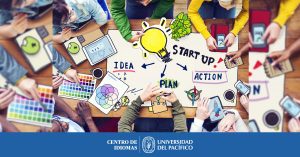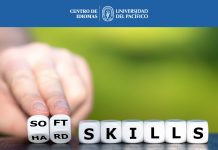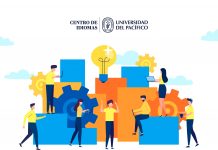Paradoxically as it may sound, the best way to acquire a new language is not studying it, but dedicating your efforts to learn something specific using a new tongue. Most people and also linguists think that the best way of learning speech is the natural way, the form we learned our mother tongue, and have tried to design a method imitating it. But we often forget that when we, as babies, were trying to gain control of our first utterances, were not interested in learning language as such, but in communicating or gaining information about the world around us. From there we can deduce that language is not the goal of knowledge but the tool to attain it.
Based on that came “new” methods of focusing the acquiring of a second or foreign language, namely Content Based Instruction (CBI), Task-Base Learning (TBL), Task-Based Language Teaching (TBLT), English for Academic Purposes (EAP), and Task-Based Instruction. All of these are based on gaining knowledge about a subject or working on a project producing a tangible product, while using, and consequently acquiring, the target language while hardly realizing that they are doing it. Developing linguistic abilities does not seem to be the main purpose of what they are doing. But it is, although the interest of the students in what they are working on overshadows that aspect. So much so, that some students may think that they are not toiling enough in their language skills. In that case you could add some language focused follow-up exercises. According to the British Council, in recent years, content-based instruction has become increasingly popular as a means of developing linguistic ability.
How to achieve it?
The ideal situation is shown in bilingual schools, where students are taught most of their courses in the target language. But this is not the only way. In International baccalaureate, for example, where students have their own laptops, or in classes held in computer labs, after setting on an interesting subject, students may be assigned appropriate sources dealing with different facets of the matter and then, in small groups, find information. After that, you can form new groups and have them share the information obtained. In the end, some kind of product, such as a group report or presentation could be presented.

At any rate, the purpose is to make learning a new language interesting and motivating. In the words of the Council: “Students can use the language to fulfil a real purpose, which can make students both more independent and confident” and also “develop a much wider knowledge of the world through CBI which can feed back into improving and supporting their general educational needs.” What is really crucial is that students become really interested in what they are learning, constructing or preparing; in other words, content must be stimulating.
Usually language is taught in isolated language fragments. Exercises present lists of sentences, often even without connection among them, which are not meaningful or realistic for students. Classroom’s pattern of teaching is limited to grammar, reading & comprehension. In the case at hand, students discover interesting content & are involved in appropriate language-dependent undertakings, they develop priceless thinking as well as study skills as note taking, summarizing and extracting key information from texts.
You may think that this could work for higher levels but not for students that have a low level use of the language; but we saw a class of very little children with the task of making cookies, which they made in a classroom and took home to proudly share with their families. The whole process was conducted in English and the little kids could not be happier or feel more self-important. Who says we cannot take boredom out of language learning?
There is a lot more to be said about the subject, but the space would not suffice and maybe your patience, dear readers, could extinguish. Let us leave the rest for another occasion, and finish with a thought by a great educator: David P. Gardner, former president of the University of California and the University of Utah. He said: “More of the learning of a language is simply by the exposure of living. Much that passes for education is not education at all but a ritual. The fact is that we are being educated when we know it least”.
References:
British Council Newsletter. Content-based instruction
professoryasin. August 2010










